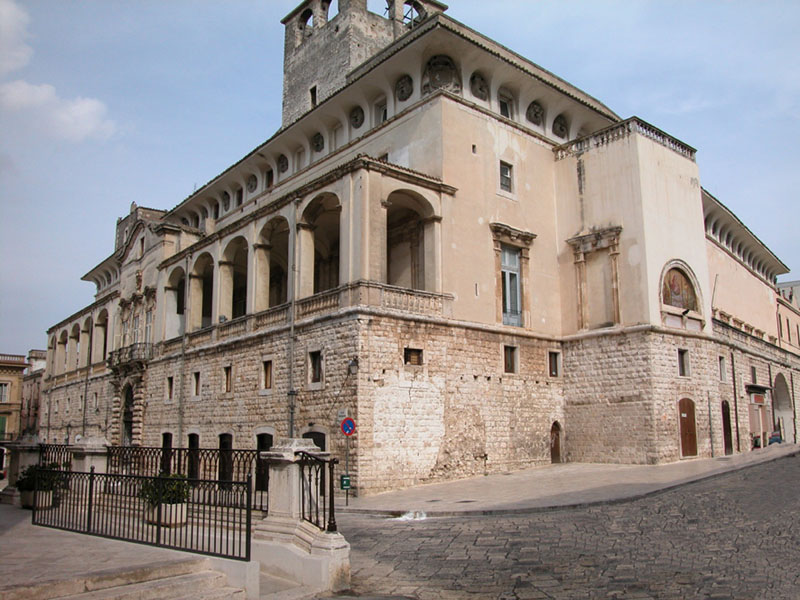

Acquaviva was founded in the early Middle Ages on the remains of a pre-Roman Peucetian village. It owes its name to the vast aquifer that for centuries attracted the people of Horace’s ‘Siticulosa Apulia’. The underground water, which can still be ‘spied’ today from the wells in the Old Town, has made the land fertile and today gives the typical, sweet freshness to the renowned Red Onion. The important religious tradition is witnessed by the evocative little churches in the alleyways, the Feast of Our Lady with the rite of the “Throwing of the Balloon” and the Cathedral which, with its beautiful rose window and precious crypt with sumptuous silver altars, challenges from Piazza dei Martiri the elegant Palazzo De Mari, an ancient Norman castle, later the princely residence of the Genoese bankers De Mari and now the Town Hall. Piazza Vittorio Emanuele displays the only brick Cassarmonica in central-southern Italy, a monument to the Banda Musicale (Musical band), founded in 1797, which boasts awards in Istanbul and Stockholm. The town is also home to Apulia’s largest Astronomical Observatory.
In Acquaviva there is the largest population of saplings of Primitivo Gioia del Colle of the whole DOC area. The production of this kind of wine arrives in Acquaviva around 1820 and finds ideal pedoclimatic conditions – also because of the presence of water in the subsoil – that allow a remarkable diffusion. The revival of production, which had been partly abandoned, took place in the early 2000s thanks to the Chiaromonte and Polvanera wineries, the latter in the Gioia del Colle area. Today the Primitivo di Acquaviva is considered to be particularly elegant and long-lived and is of great interest from an oenological point of view. Thanks to its polyphenol content, in moderate doses it can have positive effects on the cardiovascular system. Recently, a census of the saplings has been promoted with a view to creating a park to ensure their enhancement and protection.
